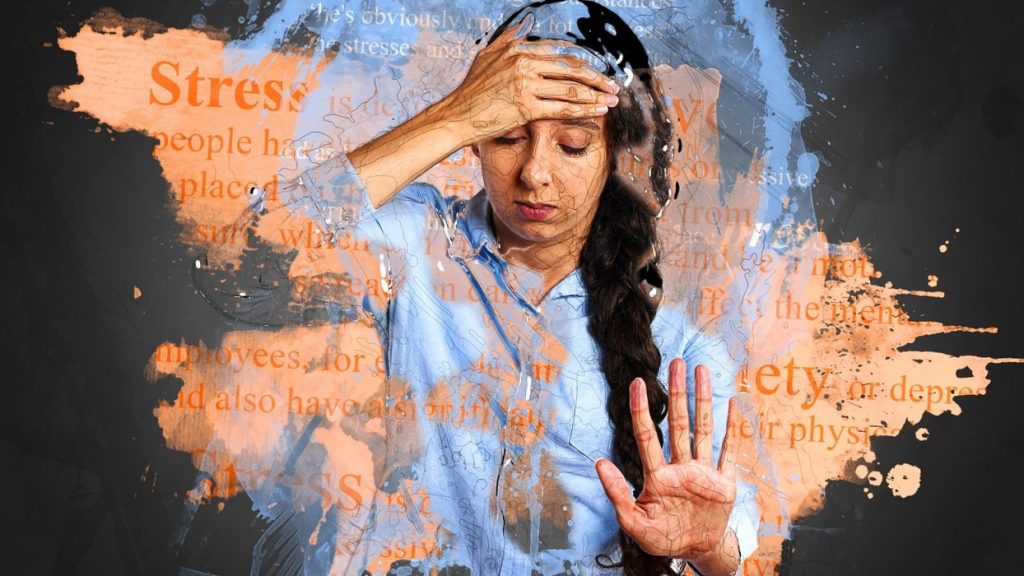Most of us experience grief, isolation, or depression occasionally. It’s a common response to difficulties and struggles in life, bereavement, hopelessness, or an injured self-esteem. When intense sadness, including feelings of helplessness, hopelessness, and worthlessness, lasts for several days to weeks and prevents you from living your life, it may be more than sadness. Know the difference between signs of depression and sadness and get the right treatment at the earliest.
Depression is a mood or mental health disorder characterised by persistent feelings of sadness and a loss of interest in activities. It can also cause physical symptoms such as changes in appetite, fatigue, and difficulty concentrating. Depression can interfere with a person’s daily functioning and well-being and even lead to suicidal thoughts or actions in severe cases. The signs of depression vary from person to person. It is important to seek help from a mental health professional if you think you might be experiencing depression. They can help you identify the causes of your depression and develop a treatment plan to improve your symptoms.
Common symptoms and signs of depression
The symptoms and signs of depression can vary. However, for most people, the symptoms of depression seriously impact their ability to perform daily activities, interact with others, and live their everyday lives. Chronic medical conditions, such as heart disease or cancer, can increase the risk of developing signs of depression. If you have depression, you may frequently experience some of the following depression symptoms:
- Persistent feelings of sadness, emptiness, or hopelessness
- Loss of interest or involvement in activities that were once enjoyed
- Changes in appetite, often with weight loss or gain
- Difficulty sleeping or oversleeping
- Feeling of irritability, anger, and frustration
- Physical agitation or slowing down
- Loss of energy or fatigue
- Feeling of lack of support system and loneliness
- Slow thinking, speaking, and movements
- Difficulty concentrating, remembering, or making decisions
- Persistent digestive issues that don’t get better even after treatment
- Feelings of worthlessness or guilt
- Lack of energy and tiredness
- Agitation and restlessness
- Withdrawal from casual activities
- Inexplicable stress and tension
- Thoughts of death or suicide
Depression in Children & Teenage
The common signs and symptoms of depression in kids and teenagers are similar to those of adults, but there can be some exceptions.
Depression symptoms in young children include impatience, sadness, loss of control, aches, irritation, sudden mood changes, being underweight, and refusal to attend school.
On the other hand, depression symptoms in teenagers include despair, anxiety, grief, irritability, feeling worthless, self-harm, anger, poor performance at school, being extremely sensitive, feeling misunderstood, using drugs or alcohol, insomnia, excessive eating and sleeping, etc.
Know, how to deal with depression
Impact of depression on life
Depression can happen to both men and women of any age. Regardless of the age group and socioeconomic background, it affects people. It’s important to note that everyone experiences depression differently, and not everyone will experience all of these symptoms. If you are concerned that you or someone you know might be experiencing depression, it’s important to reach out to a mental health professional for a proper diagnosis and treatment.
- Depression can have a number of negative effects on a person’s physical and mental health. Here are some potential risks associated with depression:
- Heart disease: Depression has been linked to an increased risk of heart disease, cardiovascular problems, and even stroke or paralysis.
- Substance abuse: People with depression may turn to alcohol or drugs as a way of coping, which can lead to addiction and other health problems.
- Obesity: Depression is associated with changes in appetite, which can lead to weight gain or loss. This can increase the risk of obesity and related health problems.
- Decreased productivity: Depression can interfere with your ability to properly work and complete daily tasks, leading to decreased productivity.
- Social isolation: Depression can cause people to withdraw from social activities and relationships, leading to isolation and loneliness.
- Cognitive decline: Depression has been linked to problems with memory and concentration, which can lead to cognitive decline.
- Suicide: Depression is a leading cause of suicide and suicidal thoughts. It is important to take any thoughts of suicide seriously and seek help immediately.
Risk factors for depression
There are a number of factors that may increase the risk of developing depression. It’s essential to note that the given below factors are just a few of the many potential risk elements for depression and that not everyone who experiences these risk factors will develop the disorder. If you are concerned about the risk of developing depression, it’s critical to talk with a mental health professional to recuperate from it.
Personal history: If you have a history of depression or other mental health disorders, you may be at an increased risk of developing depression. Blood relations with a history of depression, suicide tendencies, alcoholism, etc can trigger this condition in you as well.
Family history: If you have a family member who has struggled with depression, you may be at an increased risk of developing the disorder.
Traumatic life events: Experiencing a traumatic event, such as the loss of a loved one or physical abuse, can increase the risk of developing depression.
Substance abuse: Substance abuse, especially alcohol and drug abuse, can increase the risk of developing depression. The signs of depression in this stage are the over-dependency of the person on substances.
Hormonal changes: Hormonal changes in people can induce depression. It may usually occur during menopause or pregnancy and can increase the risk of developing depression.
Trouble adjusting to severe medical conditions or diseases such as heart problems, chronic pain, stroke, etc. Difficulty dealing with body changes as a result of physical injuries can also cause depression.
Lack of support systems such as friends, family, or anyone to share their feelings and thoughts with.
Drugs that cause depression
Some medications can cause depression as a side effect. Beta-blockers, which are commonly used to treat high blood pressure and other cardiovascular conditions; benzodiazepines, which are commonly prescribed to treat anxiety and insomnia; corticosteroids, a type of medication that is commonly used to treat inflammation; certain antibiotics; proton pump inhibitors; and H2 blockers, a class of medication that is used to treat gastroesophageal reflux disease, etc., can cause depression.
When should I see a doctor?
It is generally a good idea to see a doctor if you are experiencing symptoms of depression that are disrupting your daily life or causing significant distress. The symptoms or signs of depression may be different for each person. So don’t generalise it. If you have been experiencing symptoms such as loss of interest in activities, hopelessness, difficulty concentrating, unnecessary guilt feelings, suicidal thoughts, and so on for more than two weeks, it is critical that you seek help as soon as possible. Depression usually requires long-term treatment and a recovery period. A mental health professional can help you determine whether you are experiencing depression and develop a treatment plan to manage your symptoms. They can also provide support and resources to help you cope with your symptoms and improve your overall well-being. If you are having thoughts of suicide, it is important to seek help immediately.



